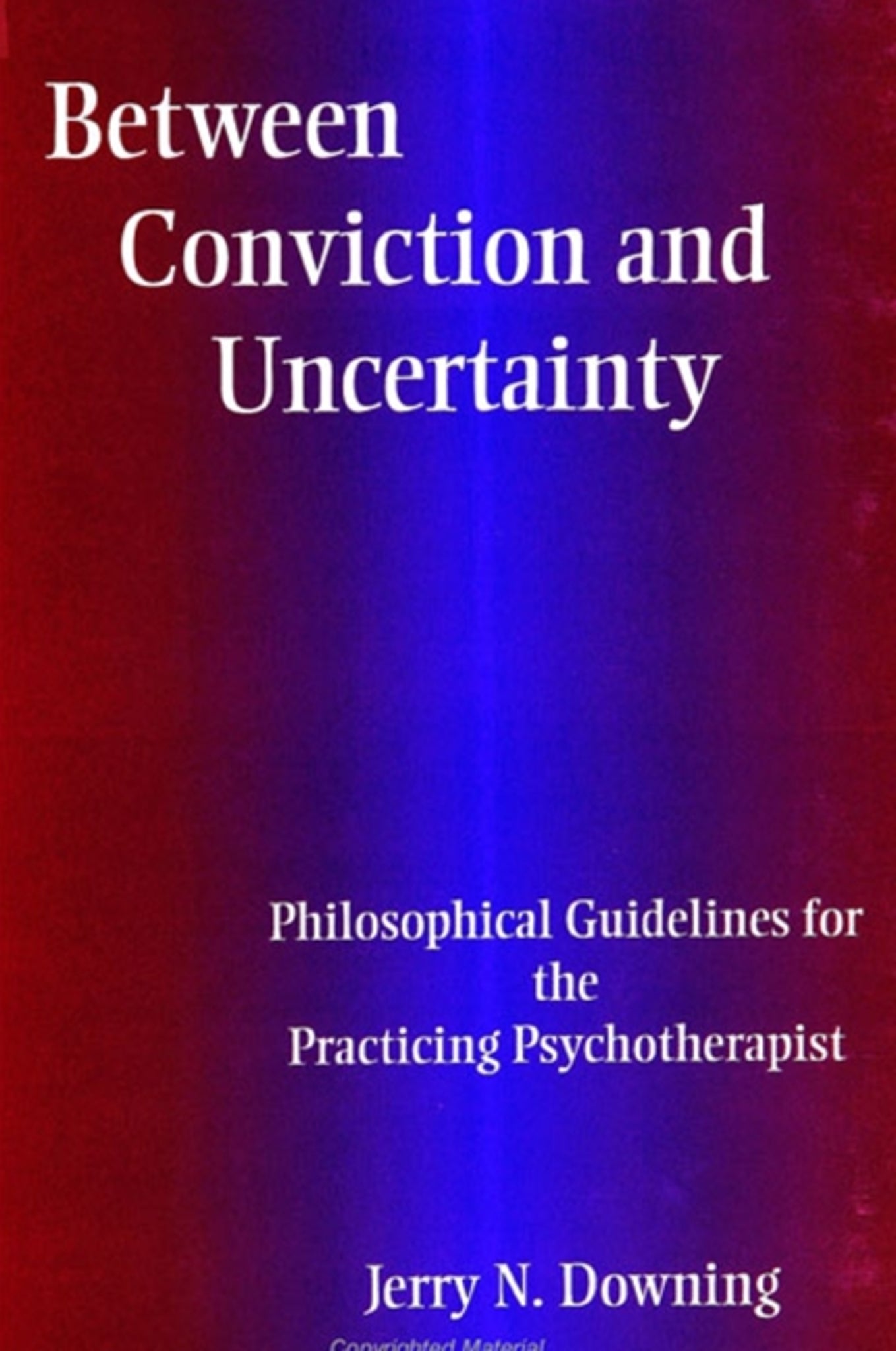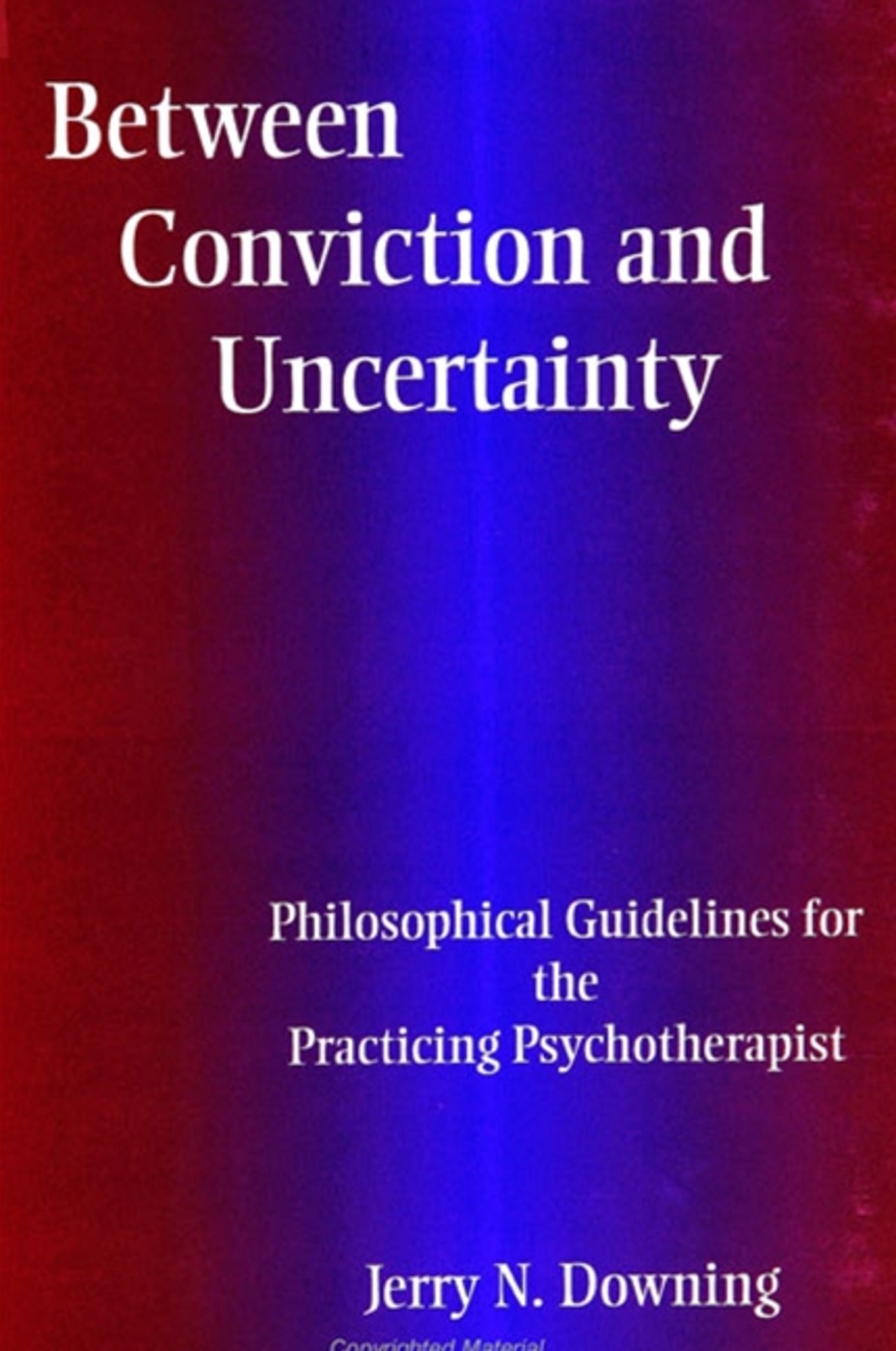We're sorry. An error has occurred
Please cancel or retry.
Between Conviction and Uncertainty

Some error occured while loading the Quick View. Please close the Quick View and try reloading the page.
Couldn't load pickup availability
- Format:
-
14 July 2000

Explores the philosophical context within which psychotherapy functions.
At a time when scores of seemingly incompatible theories and methods are competing for ascendancy in psychotherapy, one could argue that the crucial intellectual and moral dilemmas of this field are largely philosophical in nature. Yet most psychotherapists are never formally exposed to philosophical thinking during their training years or subsequent careers. Between Conviction and Uncertainty: Philosophical Guidelines for the Practicing Psychotherapist makes a significant contribution by bridging this gap. Jerry Downing examines and clarifies the philosophical context-epistemological, scientific, moral-within which psychotherapy functions. He demonstrates the necessity of maintaining a creative tension-a dialectic-between conviction and uncertainty in the work of the therapist and, more importantly, he explores in depth how this might be done. Further, he presents these sometimes complex ideas in prose that is truly reader-friendly. This book should appeal to all practitioners, supervisors, and students/trainees who find value in reflecting on the nature of psychotherapeutic practice, as well as to readers with theoretical or philosophical interests in psychotherapy.


"Jerry Downing … has written a remarkable book, which clearly articulates the ways in which our ideas of reality (ontology) and knowledge (epistemology) contribute to the variety of endeavors that we call psychotherapy." — Transcultural Psychiatry
"This book brings clarity to any examination of the philosophical underpinnings of psychological practice." — Lisa Hoshmand, author of Orientation to Inquiry in a Reflective Professional Psychology
"I think the topic is very significant. In this Age of Information—where there are so many psychotherapeutic theories—we need a philosophical framework to guide us. Downing does a good job of this. His work is comprehensive and scholarly." — John Suler, Rider University and Private Practice
List of Tables
Acknowledgments
Introduction
1
Challenges from the Psychotherapy Literature:
What Do Therapists Know?
The Proliferation of Therapeutic Theories and Methods
Historical and Comparative Approaches to Psychotherapy
The Empirical Literature on Psychotherapy
Subjective Factors in Theory Construction, Selection, and Use
Moral and Political Dimensions of Therapy Practice
Summary
2
Challenges from Philosophy: What Can Therapists Know?
Relevant Philosophical Terms and Trends
A Formulation and Review of Philosophical Positions
Postmodernist Implications for Nihilism and Relativism
Summary
3
The Revelatory and Restrictive Functions of Psychotherapeutic Theories
Misapplications of the Paradigm Concept to the Human Sciences
Kuhn's History and Philosophy of Science as Psychology
Comparisons to the Theories of George Kelly and Carl Rogers
A Theory about Human Theories
4
The Range of Philosophical Assumptions in Psychotherapeutic Theories
Does the Objectivist-Constructivist Contrast Apply to Theories, Theorists/Therapists, or Therapeutic Practices?
What Are the Varieties of "Constructivism" in Contemporary Psychotherapy?
How Does the Objectivist-Constructivist Contrast Relate to Subjectivism and Transpersonalism?
Summary and Conclusions
5
Philosophical Assumptions as Lived Modes of Knowing
Toward the Integration of Philosophy and Lived Experience
A Framework for Lived Modes of Knowing
6
Lived Modes of Knowing in the Therapist's Experience
The Realist Mode of Knowing
The Representational Mode of Knowing
The Perspectival Mode of Knowing
The Dialogical Mode of Knowing
The Critical Mode of Knowing
The Nihilistic Mode of Knowing
7
Implications for Practice: Toward a Morally Situated Psychotherapy
The Risks of Certitude: MPD and Satanic Ritual Abuse
The Necessity and Danger of Therapeutic Conviction
Ethics, Morality, and Reflexivity in Therapy Practice
Components of a Morally Situated (Reflexive) Epistemology
Cognitive, Emotional, and Experiential Barriers to Dialectical, Pluralistic Practice
References
Name Index
Subject Index



